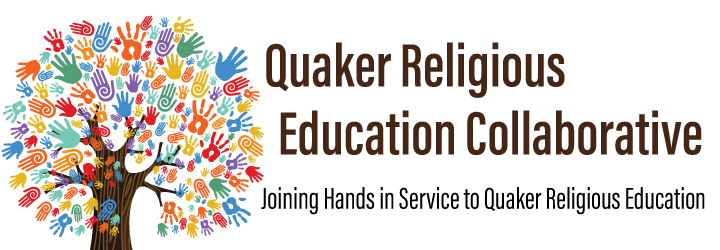
Topic: Walk Gently Over the Earth: Religious Education for Sustainable Living
Friends, young and old, find joy and inspiration in the natural world, yet we are challenged by a mounting environmental crisis. Friends from Quaker Earthcare Witness (QEW) to explore resources to help Friends lead sustainable lives and advocate for the environment in a spirit-led way.
Facilitators
Windy Cooler: Sandy Springs MD Meeting, BYM
Sita Diehl: Madison WI Meeting, NYM
Conversation Starters
Margaret McCasland (Ithaca MM, NYYM) Her professional work included 3 interwoven threads: early childhood education, science and environmental education, and education policy. In 2006 she became a Quaker and realized that Global Warming was already having a significant impact on our planet. In 2008, she participated in a faith-based version of Al Gore’s Climate Project and has been doing interfaith work on the climate crisis ever since.
Paula Kline (Westtown MM, PhYM) is a member of the Eco-Justice Collaborative of Philadelphia Yearly Meeting. She has advanced degrees in Library Science, Urban Sociology and Human Development. A lifelong educator and activist, she has worked for Save the Children as an education advisor for Latin America, founded a teacher training institute in Nicaragua, and more recently the sustainable agriculture program director at Westtown School. She currently devotes her time to local solutions to climate disruption in Chester County and habitat restoration in the cloud forest region of Veracruz, Mexico.
Queries:
- What resources for learning and practicing EarthCare have been useful to your religious education program?
- What kinds of resources and ideas are useful to approach this topic with older youth?
- How can we inspire young Friends to live from the deep center; and to speak and act for Earth care in age appropriate ways?
- How can we, as religious educators, open the way for individual Friends and Meetings to practice sustainability and to advocate for the environment?
Facilitator Introduction: Check-ins were more extended because of the stressful times due to the coronavirus crisis. Friends spoke about the limitations and opportunities of connection in this moment when many people are trying to limit in-person interactions. We also talked about our connection to the topic of sustainable living/climate change and how to have meaningful conversations with youth about that topic.
- Interest in setting aside time to explore how we can support children and families at this time
- Hopefulness around younger folks already having tools and experience for online connection
- Possible collaboration between QEW and Friends Peace Teams
- Friends wanted to listen and absorb on the topic of climate change/sustainability
- Intersections of racial and economic justice with climate change
Conversation Summary:
COVID-19 Resource: New QREC Facebook page, Valiant Together, RE resources for youth and families: created by Mim Coleman, Mackenzie Morgan and Melinda Wenner Bradley who were discussing creative resources for kids and families stuck at home. This is a group where anyone can post and share resources. Harkening back to the Valiant 60.
How to support families? This isolation may be hitting teens particularly hard. NEYM has converted an upcoming teen retreat to Zoom, some meetings are offering online worship. Sharing lesson plans and activities online seems like a great idea.
Friends spoke about their sense of how youth in their communities are doing
- Kaia in Ohio Valley YM offering some worship/check-in space specifically for middle and HS youth, keeping structure and content minimal– sense that people are trying to figure this out and feeling perhaps bombarded with content possibilities.
- Possibility to gather a few families and offer people an opportunity to share literally where we are– our homes, our family members, pets, etc.
- Little windows into our individual reality that creates space for connection.
- People may respond to phone calls, more direct personal contact– email feels impersonal even when sent personally.
This provides us with an opportunity to be more intimate with one another in some ways.
- Early Friends communicated with one another extensively by letter, and that provided opportunities for deep intimacy.
- There’s also a deep connection with ‘waiting’ in our tradition– much of what we are doing right now is some form of waiting.
Important practice is avoiding speculation when unclear about what other people are experiencing. Ask people what they need.
- Nadine, (Friends Peace Teams) who does a lot of work in disaster zones, has found that it takes around 90 days for people to recover from shock, overwhelmedness.
- Looking at the long-term possibilities– one org is projecting that we may be in this for 12-18 months. What does this look like once we have moved through the initial shock? What we need to do now may be really different from what need to do to support people after the 2-3 month mark.
- Also helpful to be really *specific* in communication about what is being offered, to not overwhelm people.
Friends Peace Teams is a platform for supporting Friends as leadings arise– it’s almost entirely volunteer. FPT can support Friends with a call to ministry on EarthCare, viewing making peace with the earth as essential for us to make peace with one another as humans. Deeply intertwined with racial and economic injustice. Many wars are fought over resource access. Nadine speaks about ‚’simplicity’ as direct relationship: for example, not okay to buy things and not know where they come from (even though we all do this all the time).
- How is sustainable living a call to connect more deeply with each other and our surroundings in a spiritual way?
- Important to engage community members, including children, in projects to support one another in meeting our own needs.
Kaia is working on an ethnography project in Flint, Michigan, racial and economic factors in the environmental situation there. Gap between the language that academics use to describe/analyze a situation vs. how people understand the issues facing their community themselves. Preparing to take youth on a learning trip, looking at how to help them engage with these issues. See resource below on Ethnography and Pastoral Care
We need to collaborate with other faith communities.
Grateful Worship
Resources
Earthcare for Children: A Curriculum for First Day School, Sunday School & After School Programs by Sandra Moon Farley, Diana Gail Egly Thomas and Baxter Farley. Prepared for Quaker Earthcare Witness (QEW)
Earthcare for Friends: A Study Guide for Individuals and Faith Communities, by Louis Cox, Ingrid Fabianson, Sandra Moon Farley, Ruah Swennerfelt Judy Lumb and Brad Stocker. Prepared for Quaker Earthcare Witness (QEW)
QEW Pamphlets. Quaker Earthcare Witness has more than 30 pamphlets on a wide range of Earthcare-related issues, available for downloading or in hard copy.
QEW article on Awakening Across All Branches of Friends
From Friends World Committee for Consultation (FWCC)
Quaker United Nations Office: A Government Official’s Toolkit Inspiring Urgent Climate Action 166 direct quotes from recent research worldwide, divided into 12 briefcases. This booklet was created to help empower people when talking with decision makers on what is happening, why, and what we can do urgently to help:
Human Rights Based Approaches to Climate Action Distributed at the climate negotiation conference in Bonn, this two-sided is about including people fairly to create effective and sustainable climate policy. Includes positive examples and links to international human rights reports:
Quaker values and a vegan future British Quaker Rajan Naidu writes about learning that dietary shifts could contribute to 1/5th of mitigation needed to hold warming below 2° C, with a quarter of low cost options (see Gov Toolkit p.33, ref 200),
FWCC has prepared a film about Quakers and sustainability/climate change:
The FWCC list of Resources for Meetings also includes case studies, videos podcasts and other resources and articles.
Folktales and Storytelling for Earth Care:
- Spinning Tales, Weaving Hope: Stories, storytelling and Activities for Peace, Justice and the Environment. (2nd edition), Ed Brody, Jay Goldspinner, Katie Green, editors
- Keepers of the Earth: Native American Stories and Environmental Activities for Children, by Joseph Bruchac
- Earth Care: World Folktales to Talk About, Margaret Read MacDonald
- The Other Way to Listen, Byrd Baylor
Other Resources:
- Drawdown, by Paul Hawken: A book on what really matters in terms of reducing carbon impact to limit climate change.
- Quakers, Creation Care, and Sustainability, by Cherice Bock (George Fox University) et al, Cherice Bock’s blog.
- New Economy movement: Eco-economics, personal & social transformation — report and links
- Talking to Kids about Climate Change, by Philip Emmi, YES Magazine
- Ethnography as a Pastoral Practice: An Introduction, by Mary Clark Moschella:
Participants
Tuesday, 3/17/20 1:00PM Eastern
| Name | Meeting-Organization |
| Windy Cooler | Sandy Springs, BYM |
| Sita Diehl | Madison WI, NYM |
| Sally Farneth | MA, NEYM |
| Katie Green | Clearwater, SEYM |
| Kody Hersh | SEYM Youth and YA Coord |
| Nadine Hoover | Buffalo MM, NYYM |
| Kaia Jackson | OVYM Youth Coordinator |
| Chris Jorgenson | Friends Meeting of Cambridge |
Thursday, 3/19/20 8:00 PM Eastern
| Name | Meeting-Organization |
| Joan Broadfield | Chester PA, PhYM |
| Sita Diehl | Madison WI, NYM |
| Marian Baker | NEYM |
| Anna Dulin | Orono ME, NEYM |
| Gail and John Fletcher | Norman OK, SCYM |
| Jessica Girard | |
| Kody Hersh | Orlando MM, SEYM |
| Cameron Hughes | Goose Creek MM, BYM |
| Paula Kline | Westtown PA, PhYM |
| Virginia Kristl | Dover MM, NEYM |
| Margaret McCasland | Ithaca NY, NYYM |
| Ellie Rosenberg | Ithaca NY, NYYM |
Author: Quaker Religious Education Collaborative
Illustrator:
Publisher: QREC
Age Group:
Preparation Time:
Related File: Click to view/download file
Related Link (or File): Click to go to link
Topics: Curriculum, Earth Day, Environment and Stewardship, Environmental, Lessons & Activities, Outdoor activities, Science and Religion, Stewardship



